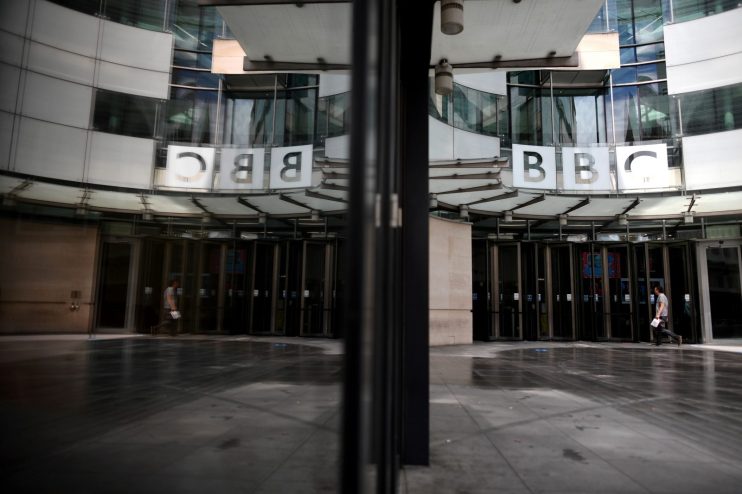BBC licence fee negotiations kick off as ministers ramp up pressure over funding

The government today kicked off negotiations with the BBC over how much the TV licence will cost in the future, dialling up the pressure on the embattled public service broadcaster.
The talks will determine the level of the licence fee, which is currently set at £157.50, for at least five years from 2022.
Culture secretary Oliver Dowden has asked the BBC to set out its financial needs alongside its public purposes to inform his assessment of the “appropriate” level for the charge.
“Public service broadcasting is woven into the cultural fabric of the UK, but to remain relevant and meet people’s needs in the digital age it must evolve,” Dowden said.
“We are today taking a step forward in our roadmap for reform of the BBC and beginning negotiations to agree the cost of a TV licence from 2022 so that it offers fee payers the best value for money.”
It came as ministers unveiled a new panel of media bigwigs to advise on the future of public service broadcasters.
The Public Service Broadcasting Advisory Panel includes Michael Grade — former BBC and ITV chair and chief executive of Channel 4 — as well as senior executives at Facebook, Sky and ITN and former Downing Street spin doctor Sir Robbie Gibb.
The group, which will meet around six times over the course of a year, will advise the government on how the broadcasting market should adapt to modern viewing habits and whether existing funding models are fit for purpose.
“Our public service broadcasting remit has served the nation well for over 80 years but the time has come to review its relevance for the digital age and maybe redefine it,” Lord Grade said.
The future of funding
It marks a further ramping up of pressure on the BBC amid a fierce row over its licence fee funding model, accusations of bias and declining audience numbers.
The funding fee negotiations, which are set to conclude by the autumn of next year, are the first since 2015, when the government said it would stop bankrolling free TV licences for over-75s.
The scrapping of the over-75s concession was delayed due to the outbreak of coronavirus, but came into force in August. It has sparked controversy amid concerns millions of vulnerable pensioners will be left unable to pay for BBC services.
“I’d hoped the BBC and government would come together to thrash out a new deal — but sadly they didn’t,” culture committee chair Julian Knight said in July. “At a time when pensioners have only just begun to ease shielding, this is a real body blow for millions.”
While the licence fee model is guaranteed until at least 2027, ministers have pledged to consider alternative methods of funding the broadcaster.
The government is also finalising plans to decriminalise non-payment of the licence fee, moving instead to a civil model that would see refusal to pay punished with fines.
But the BBC has warned that any move to undermine the licence fee model could cost it as much as £300m each year in lost revenue.
Any decision to slash the cost of the licence fee from 2022 would also come as a major blow to the corporation as it battles a squeeze on its finances caused by the pandemic.
But the BBC welcomed the government’s commitment to an “open and transparent process”.
“The past few months have served as a powerful reminder of just how much the BBC matters locally, nationally and globally. Our programmes and services have never been more relevant, important or necessary.”
“And while the world is changing swiftly, so is the BBC. We will continue to innovate, adapt and lead change.”
New director general Tim Davie has pledged to reform the BBC in an effort to stave off political pressure.
Davie last month rolled out tough new rules on how its stars use social media and engage in lucrative events outside the BBC as he reaffirmed the corporation’s commitment to impartiality.
The broadcaster is also in the process of appointing a new chairman to take over from Sir David Clementi next year, with applications set to close tomorrow.
The race for the chairman role, which has been widely seen as a political appointment, has sparked frenzied speculation, with a number of high-profile names linked to the position.
Attention has recently turned to Richard Sharp, a multi-millionaire former Tory party donor and Rishi Sunak’s former boss, who is tipped to be the frontrunner in the race.